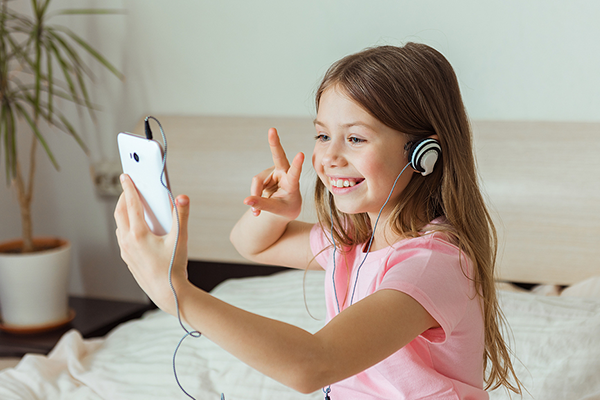One unfortunate side effect of COVID-19 is the sense of loneliness and isolation felt by many people as they observe social distancing guidelines—and kids are no exception. Keeping children and teens home from school and away from friends may cause anxiety and depression.
Ensuring that your child stays connected with friends and family has never been more important than it is right now. As you plan your days, include ways to connect with others on a regular basis. By seeing faces of loved ones and having conversations that do not include a keyboard, such as a video chat or a social distant outdoor visit, you will help your child feel emotionally fulfilled.
Ideas to Try
• Game night via video conferencing—If enjoying board games, Twister or trivia is a tradition with your crew, create a group and get together using video chat. Being able to see one another and enjoy regular social routines, albeit a little differently, you can offer your child opportunities for silliness and familiarity.
• Video chats instead of text messages—So much personal connection is lost when you cannot see the person on the other end of the phone. Smartphones and tablets make it easy to see the faces and reactions of friends and family, so encourage your child to talk with their friends via video chats, and also remember to create safe technology boundaries with your child.
• Outdoor meet-ups—Enjoy fresh air and sunshine at your favorite ballfield, hiking trail or park. Sunshine is filled with immunity-boosting vitamin D and exercise is a natural way to get feel-good endorphins flowing through the body.
If your child is experiencing anxiety and depression that interferes with their quality of life, your pediatrician can help you identify the source of stress and design a treatment plan to manage the condition. Look for these symptoms of stress as your child grows up:
• Babies and toddlers—bed-wetting even if potty-trained, clinginess, crying more than usual, digestive and feeding issues, hitting or biting others, separation anxiety, or tantrums
• Children and teens—difficulty concentrating, forgetfulness, loss of interest in favorite activities, mood swings, neglecting grooming and personal hygiene, using alcohol or drugs, weight fluctuation, or withdrawal from relationships




